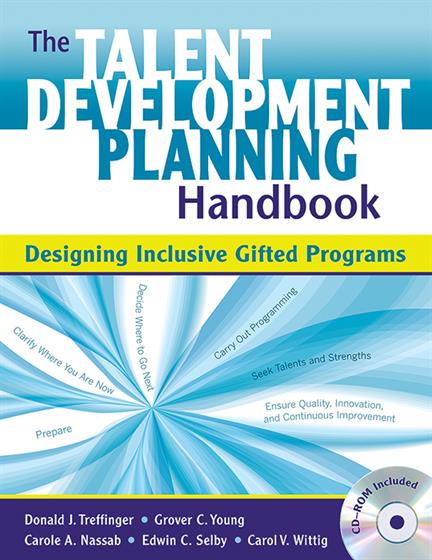
Hands-on, Practical Guidance for Educators
From math,
literacy, equity, multilingual learners, and SEL, to assessment, school counseling,
and education leadership, our books are research-based and authored by experts
on topics most relevant to what educators are facing today.

The Talent Development Planning Handbook
Designing Inclusive Gifted Programs
Gain tools to custom-build programs that nurture students' strengths and talents!
Centered on a six-stage planning approach, this comprehensive handbook provides expert guidance for shaping a contemporary, inclusive talent development program tailored to students' individual needs and strengths. The authors draw on theory, research, and more than 20 years of professional experience to provide best practices for designing new programs and reinvigorating existing ones. Key features include:
- A CD-ROM with charts, presentations, and templates
- Needs assessment and climate inventory exercises and resources
- Methods for constructing and implementing action plans
- Strategies for tackling logistics
- Program goal-setting and evaluation tools

Product Details
- Grade Level: PreK-12
- ISBN: 9781071846186
- Published By: Corwin
- Year: 2020
- Page Count: 248
- Publication date: November 05, 2020
Price: $42
For Instructors
This book is not available as a review copy.


